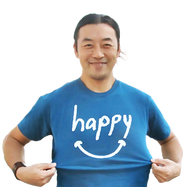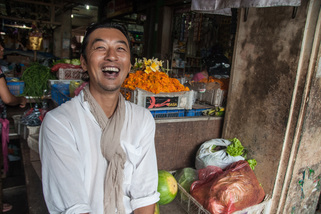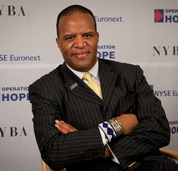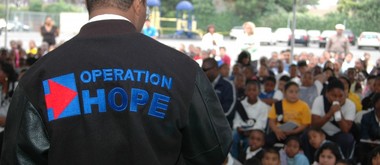
Region: Worldwide
Category: Filmmaking, happiness
Eiji is a Japanese film and TV producer and the creator of a highly acclaimed biography-like Manga series, which has been published in 12 languages and in over 25 countries. The graphic novel series covers the lives of important figures and includes biographies of His Holiness the Dalai Lama, Mother Teresa, Mahatma Gandhi, etc. Some of his books are used as text books to preserve Tibetan culture and Buddhist traditions in Tibetan schools across India and Nepal.
Eiji recently finished producing a feature-length documentary film on happiness entitled ‘HAPPY’. He traveled all over the world with academy-nominated film director, Roko Belic, and interviewed the brightest minds in psychology, neuro-science, philosophy and spirituality, as they looked deep into what makes people genuinely happy. ‘HAPPY’ has become the #1 documentary on iTunes in USA/Canada/Australia, and has been used as educational material at some of the leading psychology institutes. The quest for genuine happiness has changed Eiji’s life profoundly.
He is now a passionate meditator with Positive Psychology certifications. Together with researchers, Eiji develops and delivers empirically validated mindfulness-based programs, which is uniquely innovative and even entertaining, in order to enhance well-being and emotional balance of participants in conferences and seminars internationally. He currently resides in Ubud, Bali.
I am a 43-year-old Korean Japanese who was born and raised in Yokohama, Japan. Considering the homogeneous society of Japan I experienced cultural challenges in my upbringing. Back then, South Koreans were partly regarded as second-class citizens, which made it particularly challenging for my family and me. I have seen a lot of prejudice and discrimination during my childhood so I have been consistently upset about the prevailing injustice of society. I believe that this has fundamentally shaped who I am today.
When I was 18, I moved to the US for higher education. I then moved back to Japan where I joined a startup as a founding member. So I gained entrepreneurial experience early on in my life. After a few years I decided to move on and passed on my responsibilities to the remaining team. I went to a business school in Miami, after which I started my own company, an internet venture. This venture was performing relatively well, however as part of the bursting of the dotcom bubble back in 2000/2001, it went under alongside many other internet ventures. I was in debt, which is why I went back to Japan to work in different corporations.
However, at 35, I realized that I was not doing what I actually wanted to do but what society expected me to do. So I took the decision to move on and get back into the entrepreneurial world. My employer at that time, a Japanese media conglomerate, was doing annual venture idea competitions. I participated with the idea of a Japanese Manga series to tell biographies of important figures such as the Dalai Lama. Unfortunately, they did not see many revenue opportunities with the idea, so they turned it down. Thereafter, I decided to proceed with the idea independently…
So you have quite a long track record in entrepreneurship. What’s your attitude towards entrepreneurial failure, now that you can look back at both success and failure?
The only way to know whether past experiences were positive or negative is to assess whether you enjoy your life today. If you are happy with your life as it is today, all past failure and success are something essential. So in my case, the past experiences were all positive, because I am happy with my life as it is today.

Around the time when I decided to quit my job at the Media Company and focus on the Manga biographies, I received a call from an old college friend, Roko Belic. Roko and I used to work together in an NGO I co-founded, called Student Transport Aid. So our friendship goes back a long way. He told me that Tom Shadyac, a successful Hollywood director, came up with the idea of a documentary film about Happiness. Considering that despite his success in Hollywood he felt like he was not genuinely happy. So he figured he wants to make a movie investigating happiness. He also served as the executive producer funding the project. Roko asked me whether I was interested in becoming the producer of that movie. I told him about my idea of making Manga comic book series and asked whether I could pursue this project in parallel. He said yes, so I agreed as well. That was 7 years ago!
Can you tell us a bit more about the making of the movie and the movie itself?
Once I accepted the proposal, we went on a journey around the world and researched about happiness for 6 years. At first, we thought it would take us 2 years to complete the movie, but we ended up with a lot more time. We did not realize the complexity of the concept “Happiness”. Luckily our executive producer was mostly funding the project so we could fully devote ourselves to the making of the movie.
The “Happy” movie that sets out to answer questions such as (1) Does money make you happy? (2) Do kids and a family make you happy? (3) Do you live in a world that values and promotes happiness and well being? The movie takes the audience on a journey from the bayous of Louisiana to the deserts of Namibia, from the beaches of Brazil to the villages of Okinawa.
| |
The biggest challenge was that the concept of “Happiness” is very broad and ill-defined. Basically everything we do is related to happiness: our hobbies, our life-style, work, family, healthiness, etc. So it was similar to the search for a needle in the haystack. So we had to do a lot of ground research to understand the concept. While doing this homework, we saw that different themes popped up, such as positive psychology movement, compassion, mindfulness, optimism, meditation, gratitude, etc. Once we had identified these themes we went around the world to identify people whose way of living manifest these important themes. This was highly time consuming and it was extremely challenging to find these people. Of course it was not only a challenge but also an adventure to travel around the world and ask people whether they are happy.
Having produced this movie and having spoken to many people around the world, what is your recipe for happiness (what do happy people have in common)?
These themes combined are somewhat the recipe for happiness. It is kind of like baking a cake. If you only have eggs you cannot make a cake. You also need all the other ingredients. So it is certainly a combination of elements that are necessary for happiness. However, there are also two different types of elements. While there are some basic elements that are necessary for all cakes, others differ depending on the type of cake. It is exactly the same with happiness. While, some elements are crucial for everyone (for example good social relations), others are more person-specific, depending on the personality, goals in life, etc. Having a healthy and sporty life-style would maybe be the whipped cream on the cake.
So in essence, on top of the basic elements that are the same for everyone, each individual decides on the ingredients that make him or her happy and then needs to make sure to live up to these expectations in order to be truly happy.
Personally, I have become a passionate meditator, learning all different kinds of techniques around the world. I have developed a happiness-enhancing workshop, together with researchers, and the program includes a lot of contemplative techniques.
Above, you mentioned “optimisms” as one basic ingredient for happiness. Scientists have repeatedly shown that entrepreneurs are more optimistic people. So can we derive from this that entrepreneurs are happier than non-entrepreneurs?
I am not sure if I am directly answering the question but there is scientific evidence showing that the happy people are more creative and also more risk-taking. If you combine these two elements, besides all the other elements we mentioned above, you can of course see a lot of entrepreneurs. You might have a good idea but if you are not willing to take the risk and act on this idea you are likely to just stay in a corporation. So yes, if we only account for these factors we could say so.
Happiness is nothing that you are born with. It is highly trainable. If you follow a certain formula you can enhance your happiness.
Did you ever think about launching a website with a personal happiness index putting together these different elements helping people understand what they can specifically do to enhance their happiness?
I would love to do something like that. At the moment I am running a Japanese blog about happiness. Also, I just finished producing a TV program for the Japanese audience about the science of happiness. Moreover, I am running corporate workshops on happiness.
Is mankind becoming happier or less happy?
This is a very good question. Some things are making us happier whereas other things make us less happy. Also, one product may enhance our happiness on one of the dimensions of happiness while it diminishes our happiness on another dimension. Take smartphones, for example. One the one side, our happiness increases because they facilitate our lives and help us save a lot of valuable time; time that we could now spend with our friends or family. On the other side, people get caught up with these devices checking the Facebook status instead of looking outside the window and appreciating the sun rising in the morning. We get disconnected from the real world and physical connections with our environment.
Scientists say that over the past 50 years happiness in the US was stagnant despite all the advancements that we have made in science, medicine, logistics and education as well as the increasing wealth of people. So that is kind of ironic, given that we have all the tools and devices that should make us happy but at the same time we stop focusing on simple things in life that would make us happy.
Bhutan was the first country to introduce the Gross National Happiness Index. In summer 2013 the Bhutanese government has cast doubts about this measure. What is your opinion of this measure? Will it really do what we hope for?
As we stated in our movie, we cannot yet say whether the Bhutanese GNH approach will be successful or not. In general, the concept of the GNH is certainly relevant but I believe that the Bhutanese context might not be the ideal setting. There are many issues to be solved in Bhutan today, both political and societal. But again, the concept itself is marvelous. It let’s people shift their minds away from GDP or other national metrics. What is interesting to observe is that many Western countries and regions are now inspired by GNH and try to incorporate it into their policymaking. That is the true success of the Bhutanese approach.
Seeing that you serve as a role model for many novice entrepreneurs, who was your own ‘role model’ when developing your own entrepreneurial passion?
I did not really have any specific entrepreneurial role model when I started my own entrepreneurial career. However, there were a few quotes that did influence me on the way. One came from a successful Japanese entrepreneur who stated the following: “In order to be a very successful entrepreneur you need to have two qualities. The first quality is that you have to be smart enough to have a great idea and execute it. The second quality is that you have to be stupid enough to actually do it.”
Moreover, there was a famous Samurai who said that “when you are making a big decision in life, take it very lightly. When you are making a small decision in life, you have to take it very serious and think it through properly.”
The big decisions such as leaving a job do not require a lot of analysis at that point, because all the thinking has already been done. So the actual decision should be based on intuitive thinking. Follow your gut feeling and take a light and simple decision.
Do you have any particular advice for young and novice entrepreneurs who want to make a difference in the world?
Entrepreneurship is of course a very old concept. It all began with the history of commerce and trading. It is the concept of corporations that is a recent invention. So entrepreneurship came first! This is important to keep in mind when making a career choice. The best is to just get going and always keep in mind that even the biggest corporations of the world once started with an idea. Take it lightly and move forward step by step.
According to statistics, many of the professions that are there today won’t be there in 30 years from now. So why not go out and create your own profession; the profession of the future.
To use the happy message: Knowing that a task is made for you, that you are the only person who can do this, gives you a really good feeling. This is probably something you can only get by being an entrepreneur.
What are your next big projects?
I am working on 3D animation, similar to Pixar project. The subject is the North Korea prisoner camp. Having performed several in-depth interviews with survivors from these camps, I gained great insights into the life within these camps. So the movie works with 3D characters that are living inside these prisoner camps and its aim is to tell the stories of life within these camps, showing the tragedies but also the humor and liveliness. This project is again, in part, also related to happiness as I try to understand if and how people can be happy under such adverse conditions.
This sounds like a very relevant and interesting project. We wish you all the best for it.
Thank you for your time!



 RSS Feed
RSS Feed
